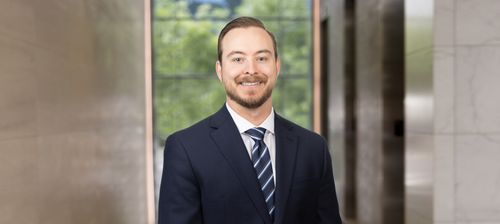Blog
Judge Albright Awards Attorneys’ Fees, Finds Case Exceptional, and Holds Attorney Jointly and Severally Liable
Blog
April 3, 2025
In Silent Communication, LLC v. BlackBerry Corp., Case No. 6:22-cv-00252-ADA, Judge Albright partially granted BlackBerry’s motion for attorneys’ fees on February 25, 2025 (the Order).
Silent Communications Inc. initially filed a lawsuit in July 2021 against BlackBerry, which was dismissed after BlackBerry provided notification that Silent Communications Inc. was not reflected as the current owner of the patent-in-suit in assignment records. Counsel for Silent Communications Inc. dismissed the first lawsuit and filed a second lawsuit in early March 2022 against BlackBerry on behalf of Silent Communications, LLC (with a comma and an “s” and “LLC” instead of “Inc.”).
BlackBerry again provided notification, followed by a first motion to dismiss, that Silent Communications, LLC was not the owner of the patent-in-suit and did not appear to exist. An amended complaint was filed in June 2022 to correct the name of the Plaintiff to Silent Communication LLC (no comma and no “s”) (Silent Texas). BlackBerry again moved to dismiss, highlighting that the asserted patent was purportedly owned by an Illinois LLC named Silent Communication LLC (no comma) (Silent Illinois).
Silent Texas attempted to justify standing based on a purported assignment to Silent Texas (the Texas Assignment). Specifically, Silent Texas advanced, for the first time in its sur-reply, that the Texas Assignment was a reformation of a previously entered assignment that mistakenly assigned the asserted patent to Silent Illinois instead of Silent Texas. In dismissing the amended complaint with prejudice, Judge Albright found that the Texas Assignment, dated May 10, 2020, could serve neither as a proper assignment nor a reformation of the “mistaken assignment” to Silent Illinois since Silent Texas was not formed until 2021.
In the instant Order, Judge Albright determined that Silent Texas was on notice of the standing issue as early as BlackBerry’s notices in August 2021 in the initial lawsuit. And the Court found that, despite repeated requests from BlackBerry, Silent Texas failed to produce the Texas Assignment until November 2022. Finally, Judge Albright held that “[Counsel for Plaintiff] conceded that he had never seen the actual assignment record (i.e., the Texas Assignment) prior to the filing of this lawsuit[.]”
For these reasons, Judge Albright deemed the case exceptional under 35 U.S.C. § 285 due to Silent Texas’s unreasonable litigation conduct and failure to establish standing. And the court noted BlackBerry’s legal costs were increased by inadequate pre-suit investigation, delayed responses, and shifting theories on standing. In holding Silent Texas’s counsel jointly liable, the court found “sufficient evidence in the record to show bad faith, improper motive, reckless disregard of duty, or unreasonable multiplication of the proceedings” and further noted, “[Counsel] has been cautioned about pre-filing failures before, and such warnings ‘aid[] the Court in finding frivolousness, motivation, and the need to advance considerations of compensation and deterrence.’”
Silent Texas and its counsel have filed a motion to amend the judgment under Rule 59(e), asserting a “manifest error” relied on in the Order. They argue the court wrongly assumed Silent Texas’s counsel had not seen the assignment before the second lawsuit. Instead, Silent Texas and its counsel maintain that the corrected assignment, following the first lawsuit, was a legitimate attempt to address the standing issue.
The rulings in this case emphasize the importance of thorough pre-suit investigation and clear communication between clients and their legal representatives to avoid costly sanctions. It also serves as a reminder for defendants to check the often-overlooked assignment record at the outset of any patent proceeding.
Related Professionals
Related Professionals
This entry has been created for information and planning purposes. It is not intended to be, nor should it be substituted for, legal advice, which turns on specific facts.



